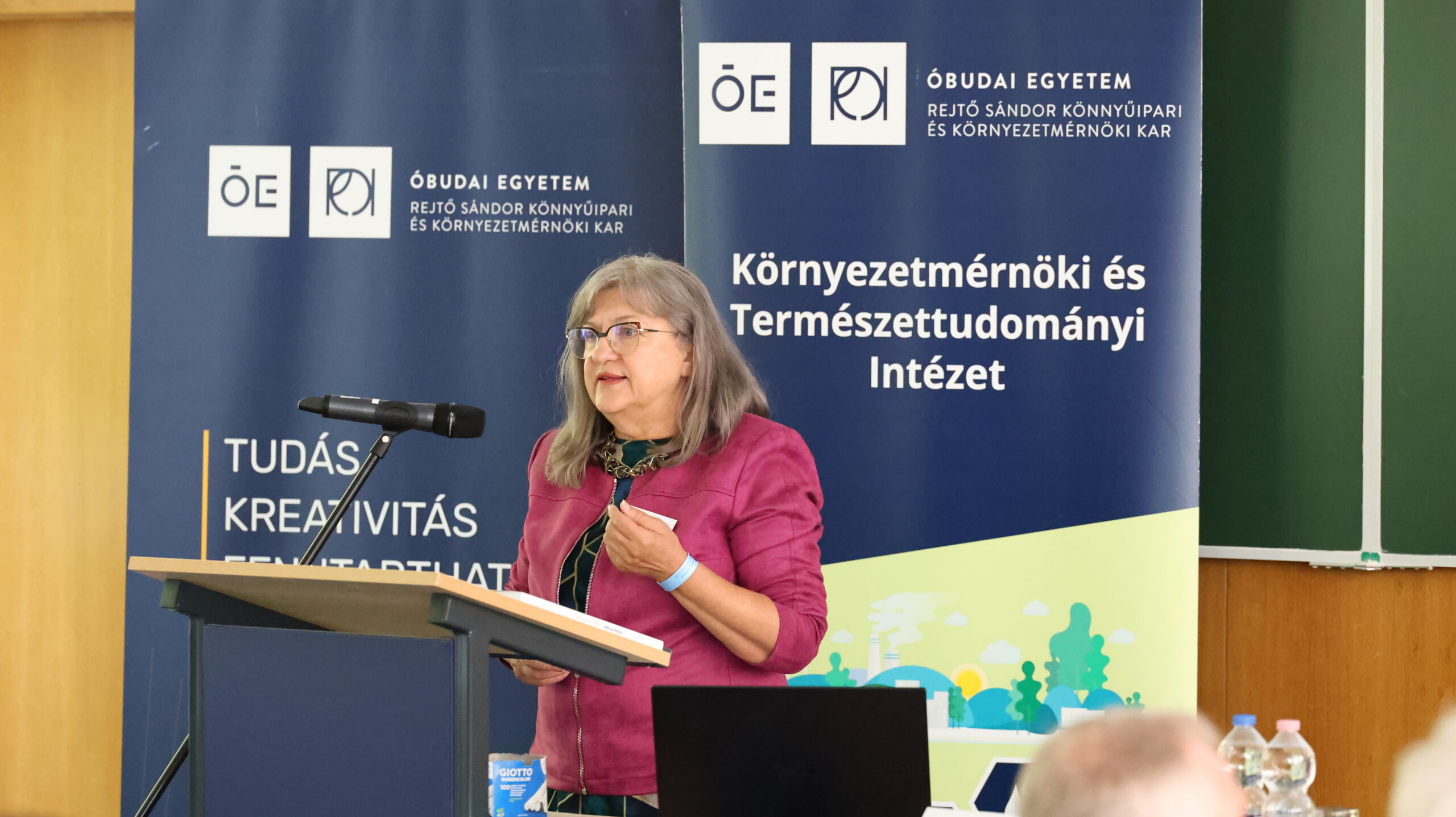We Don’t Need Everyone to Be an Environmentalist or Environmental engineer – Csaba Kőrösi and Katalin Czippán at the Óbuda University
Strategic Director Csaba Kőrösi and Katalin Czippán held presentations at the Óbuda University’s Conference on Sustainability and Environmentalism, organised by the Rejtő János Faculty of Light Industry and Environmental Engineering. This year’s title was Sustainability: Conscious Upbringing and Education.
In his keynote presentation, Csaba Kőrösi explained that today, we face complex crises that often elevate each other’s effects. We urgently need the sustainability transition, but several challenges have to be addressed before we can start effective implementation; we are experiencing a crisis in politics, in the economy, and in the academic field, and we have to face the consequences of a declining international institutional structure.
He highlighted that active participation at a global, national and local level is crucial; at a national level, countries have to develop strategies advancing the sustainability transition and promote success in the field of scientific discoveries and technology, as this can revitalise struggling economies. Regulations have to be reformed to support the implementation of the Sustainable Development Goals. He stressed that the sustainability transition requires well-informed, reflective people, and the education system has to be ready to provide the necessary training for pupils or students.
Katalin Czippán, the sustainability consultant of the Blue Planet Climate Protection Foundation, held a detailed presentation on the role of education in sustainability transition.
“As the apex predators of Earth, it is our responsibility to prevent the collapse of our environment – she explained – the type of society and economy we choose to operate determines how many of us can live on this planet and how many can have access to a decent standard of living.” She highlighted that we need to slow down the current, unsustainable processes draining our natural resources in order to allow time for coming up with new technology and acquiring new knowledge, gradually building alternative, sustainable economies and societies. She also pointed out the key role of elementary education, as this is the only stage of public education that everyone participates in. Following that, people continue to study or start to work in different fields, determined by their opportunities and interests. They will live in a bubble created through their specific experiences, knowledge, and relationships.
“If we want to find a solution, cooperation is a must. We don’t need everyone to be a professional environmentalist or environmental engineer,” said the sustainability consultant of the Foundation. “We just need to understand how we are part of a larger system.” For that, we must recognise and look beyond our bubbles. She explained how a nature-based education can replace the current narrative and help us understand, it is in our shared interest to find a balance between competition and cooperation and to preserve the Earth’s ability to sustain us.
Photos: Óbuda University

